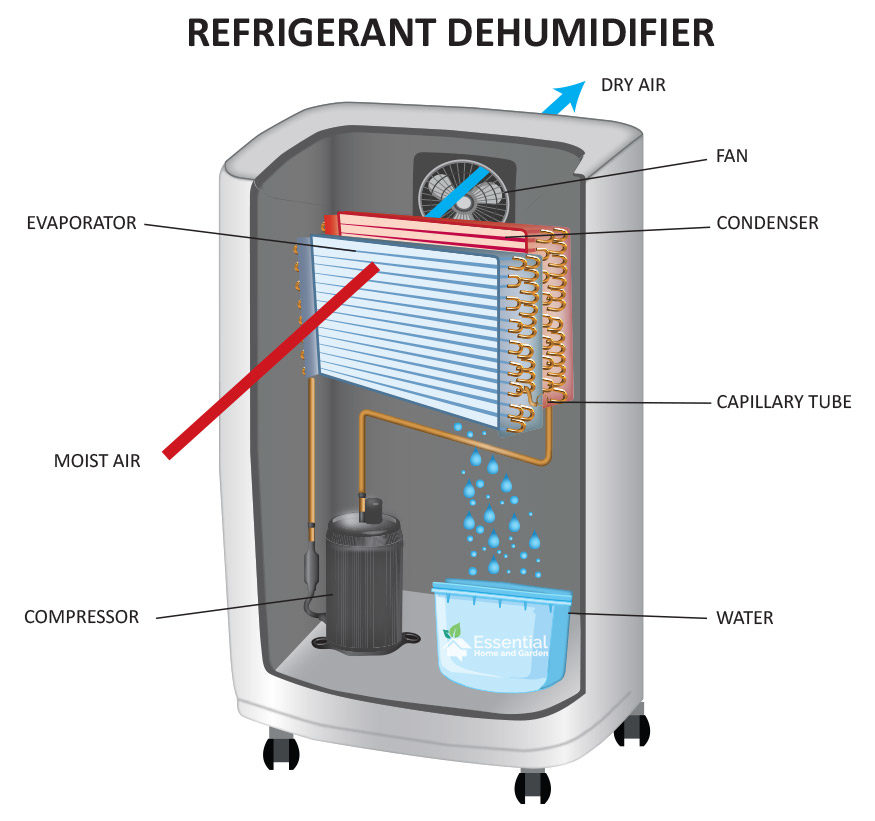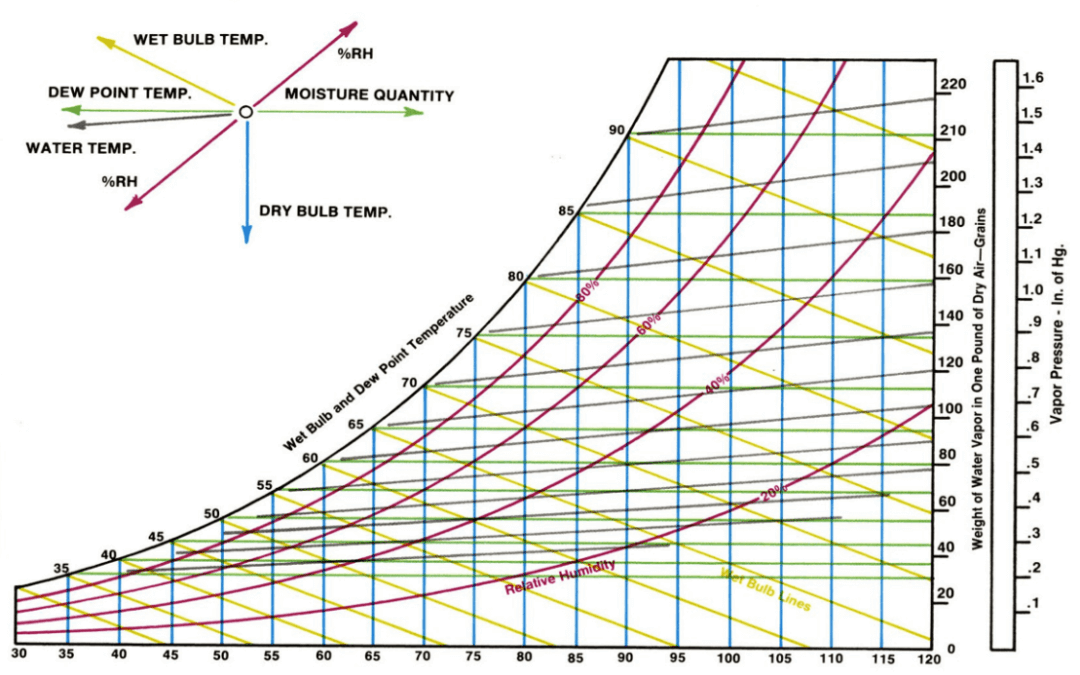Quote:
Originally Posted by Doady

If humidity is an issue, people really should get a dehumidifier so the A/C runs more efficiently and the A/C temperature doesn't need to be set so low. Less wear on the A/C, less electricity consumption, increased comfort (lower humidex), and more water for the garden.
|
Quote:
Originally Posted by Pedestrian

This is the second time you've posted this and you should study how modern refrigerated air condtioining works as well as basic meteorology. Warm air holds more moisture than cold air. As air conditioning forces the warm air through very cold coils, much of the moisture condenses out and drips out of the unit (look for a wet spot under your parked car when you've been running the A/C or for the watter dripping from a windown unit). Directly after passing through the coil, the air is very cold but when blown into the room it warms up and this means its ability to hold moisture, but not the moisture it actually holds, drops. Thus the relative (percentage) humidity drops too.
In this way, air conditioning is a very efficient dehumidifier and works as well as any other form of dehumidification. You don't need any additional equipment.
|
Pedestrian:
It's true that A/Cs dehumidify the air, but only up to a point. Doady was correct: dehumidifiers are needed when there is excessive moisture in the air. Even using correct-sized A/Cs won't work, especially (as I noted above) if the building exterior envelope has lots of air leaks in a humid climate.
Here's a picture to demystify how a dehumidifier works:
 https://www.essentialhomeandgarden.c...midifier-work/
https://www.essentialhomeandgarden.c...midifier-work/
If a dehumidifier looks kind of like an A/C, that's because is also based on the efficient refrigeration cycle. Room air is drawn by a fan through cold evaporative coils first, then through hot condenser coils after. The cold coils dry the air through condensation, and the hot coils warm this air. The result is warm dry air.
Why warm dry air? Well, you clearly understand that warm air holds more moisture than cold air, but you underestimate how much more it can hold. A psychrometric chart can answer this question:
 https://humiditycontrol.com/psychrometric-chart/
https://humiditycontrol.com/psychrometric-chart/
The air leaving an A/C is around 55-60F.
The air leaving a dehumidifier is around 90-100F.
If we draw a horizontal line from the wet bulb curve on the left to the absolute humidity vertical line on the right (weight of water in....),
we see that 90-100F air can carry 2.5-3 times the moisture that 55-60F air can carry. That is why dehumidifiers are designed to output warm dry air instead of cool dry air.
For air-leaky buildings in extremely humid climates, dehumidifiers are absolutely necessary equipment to control latent heat issues. By removing as much moisture in the air, you can use your A/C for its intended purpose: cooling your room while providing supplemental dehumidification. A/Cs by themselves should not be used as dehumidifiers.
You are correct when you say that A/Cs should be sized correctly to properly dehumidify a room. Their rated BTUs/KWs will determine how quickly the A/C will cool a room. If it cools a room too fast, the coils won't be cold long enough to provide dehumidification. At the correct BTU/KW rating, the A/C won't cool the room as quickly, but its coils will stay cold long enough to dehumidify a room.
HOWEVER, even correct-sized A/Cs won't be able to handle swampy humid climates like the Southeast US, especially if humid air is constantly entering the house through various air-leaks in the building exterior envelope (walls, windows, doors, roofs, etc.). See my post from the previous page on exactly how much water vapor enters a building through a 1 square inch hole. This problem is going to get worse as we see the continued effects of climate change.
Even very airtight buildings benefit from dehumidification, especially if the buildings are also highly insulated. That's because the A/C doesn't need to run for long in such buildings. Therefore, you need a dehumidifier to dry the air, though the amount of moisture in the air would be considerably less than in a very air-leaky building.



